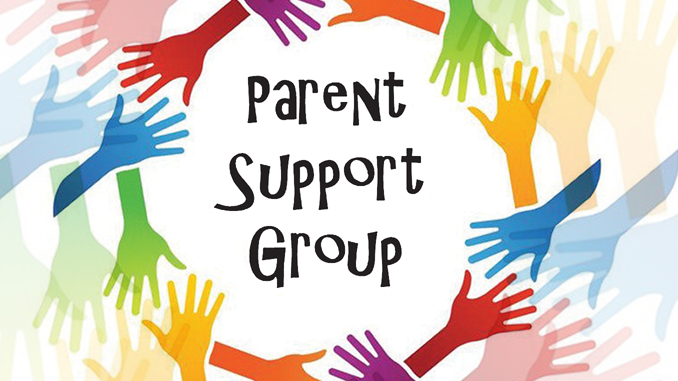The Importance of Parent Support Groups: Building Stronger Families

Introduction
Parenting can be one of the most rewarding yet challenging experiences in life. From the sleepless nights of infancy to navigating the tumultuous teenage years, the journey of raising children often comes with its fair share of hurdles. In such moments, it’s essential for parents to have a support system that understands their challenges, offers guidance, and provides comfort. That’s where parent support groups come in.
Parent support groups are communities of individuals who come together to share advice, offer encouragement, and provide emotional support. Whether in person or online, these groups can play a crucial role in helping parents feel less isolated and more empowered in their parenting journey. But why exactly are parent support groups so important, and how can they help parents thrive? Let’s dive deeper into the world of parent support groups and explore the many benefits they offer.
The Benefits of Parent Support Groups
Emotional Support and Validation
One of the greatest benefits of parentingpro.net/ is the emotional support they provide. Parenting can often feel lonely, especially when facing difficult situations or making tough decisions. In a support group, parents can find a safe space to vent, share their feelings, and feel understood by others who are going through similar experiences. This validation helps reduce feelings of isolation and reassures parents that they’re not alone in their struggles.
Sharing Experiences and Advice
Parenting doesn’t come with a manual, and every child is unique. Parent support groups provide a platform where parents can exchange tips, strategies, and personal stories. These shared experiences can offer valuable insights that help others navigate their own parenting challenges. Whether it’s advice on managing tantrums, dealing with picky eaters, or offering guidance on supporting a teenager, parent support groups are a wealth of collective wisdom.
Access to Resources and Information
Parent support groups often serve as a hub for resources and information. From educational materials and local services to expert guest speakers and workshops, these groups can help parents stay informed about parenting techniques, child development, and community resources. The shared knowledge within the group can empower parents to make more informed decisions and improve their parenting approach.
Building a Strong Sense of Community
Parenting is much easier when you have a supportive community. Parent support groups foster a sense of belonging, offering parents the opportunity to connect with others who share similar experiences. This sense of community can provide emotional comfort, practical advice, and lasting friendships that enrich both parents’ and children’s lives.
How Parent Support Groups Can Help with Parenting Challenges
Managing Parenting Stress and Anxiety
Parenting stress is a common experience for many, and it can be overwhelming. Parent support groups offer a space to talk about stressors and get practical tips on how to manage them. The collective empathy and understanding in the group can help parents feel more in control and less anxious.
Navigating Child Behavior Issues
Dealing with difficult behavior is one of the most common challenges parents face. Whether it’s tantrums, defiance, or sibling rivalry, parent support groups can provide strategies and coping mechanisms to address these issues. Sharing successful tactics with others helps parents develop more effective discipline techniques.
Supporting Parents of Children with Special Needs
Parents of children with special needs often face unique challenges that require specialized advice and resources. Parent support groups for parents of children with disabilities or special needs provide a safe environment to share experiences, learn about new therapies, and receive emotional support.
Balancing Work, Family, and Personal Life
Many parents struggle with balancing work, family, and personal commitments. Parent support groups offer practical tips for time management and self-care, helping parents find ways to juggle their responsibilities while still maintaining a healthy balance.
Types of Parent Support Groups
In-Person vs. Online Groups
In-person parent support groups offer the advantage of face-to-face interactions and immediate emotional connection. On the other hand, online support groups can provide more flexibility, allowing parents to participate from the comfort of their homes. Both types of groups have their pros and cons, and finding the right fit depends on personal preferences and availability.
Focused Groups (e.g., Parents of Teenagers, Single Parents, etc.)
Some parent support groups focus on specific groups of parents, such as single parents, parents of teenagers, or parents of children with disabilities. These specialized groups offer targeted advice and support that addresses the unique needs of specific parenting situations.
Faith-Based vs. Secular Groups
Parent support groups can be either faith-based or secular. Faith-based groups often incorporate spiritual guidance and prayer into their meetings, while secular groups focus purely on practical advice and emotional support without religious elements. It’s important to choose a group that aligns with your personal beliefs and values.
Informal vs. Structured Groups
Some parent support groups are informal, where parents gather casually to share stories and experiences. Others are more structured, with set agendas, guest speakers, and formal activities. Both types of groups can offer valuable support, but parents may prefer one over the other based on their needs.
How to Find the Right Parent Support Group
Researching Local and Online Groups
Finding a parent support group that fits your needs requires research. Start by looking for local groups in your community or online forums and social media groups. Websites like Meetup and Facebook often host a variety of parenting groups that cater to specific interests or locations.
Determining What You Need from a Group
When choosing a group, consider what you hope to gain from the experience. Are you looking for emotional support, parenting advice, or practical resources? Understanding your needs will help you find a group that aligns with your goals.
Attending a Meeting for the First Time
Attending a meeting for the first time can be intimidating, but most parent support groups are welcoming and non-judgmental. Come with an open mind, and remember that you don’t have to share anything unless you’re comfortable. The goal is to learn, share, and grow at your own pace.
What to Look for in a Support Group
Look for a group that feels safe and supportive. A good parent support group should foster a sense of community, encourage open communication, and respect confidentiality. It should also offer a balance of emotional support and practical advice.
Conclusion
Parent support groups play a vital role in helping parents manage the challenges of raising children. They provide emotional support, practical advice, and a sense of community that can make parenting a little easier and a lot more enjoyable. Whether you’re struggling with stress, navigating difficult behaviors, or seeking guidance on your parenting journey, joining a support group can make all the difference. So, if you haven’t already, consider seeking out a parent support group and start building the connections that can help you become the best parent you can be.





